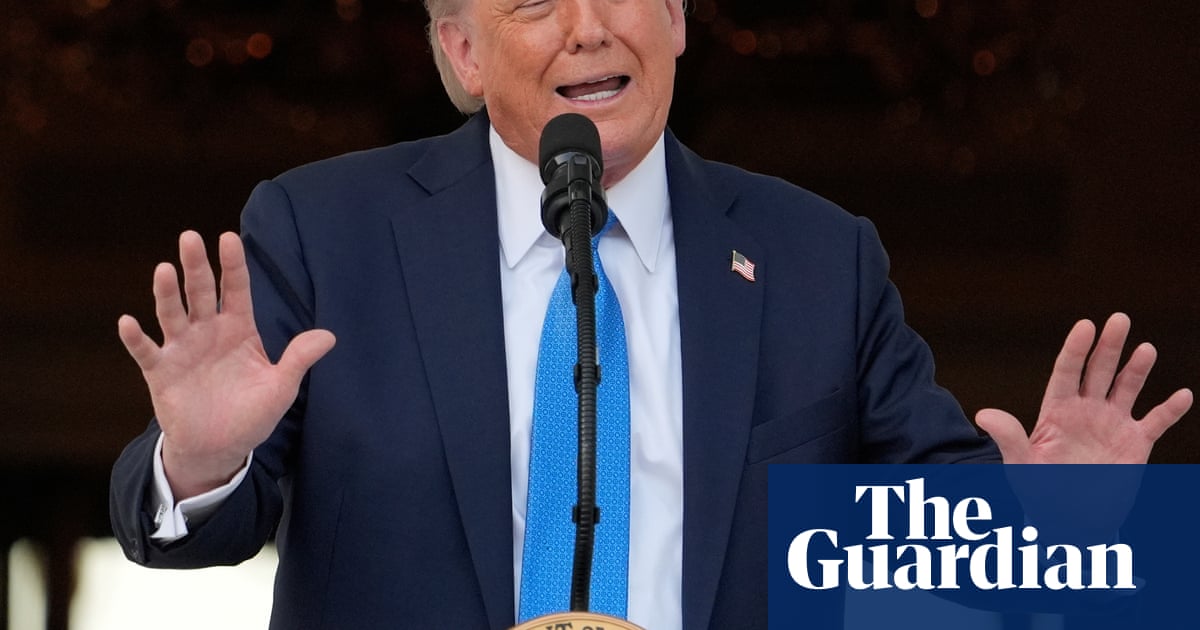Good morning.
Donald Trump has signed a sweeping orderbanning travel to the US from 12 countriesand restricting travel from seven others, reviving and expanding the travel bans from his first term.
The president said he had “considered foreign policy, national security and counter-terrorism goals” in deciding the scope of the ban. World Cup and Olympic athletes will beexempt.
The decision to ban travel comes amid a wave of hardline immigration policies, including blocking asylum claims at the southern border and cancelling temporary protected status for immigrants from a number of countries facing deep humanitarian crises. Trump has also signed a proclamation to restrict foreign student visas at Harvard University and ordered US consulates to conduct social media screening of every visa applicant seeking to travel to the university.
What are the details of the ban?The nationals of Afghanistan, Myanmar, Chad, the Republic of the Congo, Equatorial Guinea, Eritrea, Haiti, Iran, Libya, Somalia, Sudan and Yemen will be “fully” restricted from entering the US, according to the proclamation. Meanwhile, the entry of nationals of Burundi, Cuba, Laos, Sierra Leone, Togo, Turkmenistan and Venezuela will be partially restricted.
What do critics say?Advocates and experts have said blanket travel bans discriminate against groups of people based on ethnicity alone. They will likely result – like during Trump’s first term – in family separations.
The US hasvetoed a UN security council resolutioncalling for an “immediate, unconditional and permanent ceasefire” in Gaza, while the 14 remaining countries on the council voted in favor.
The vetoed resolution also called the situation in Gaza “catastrophic” and demanded the “immediate and unconditional lifting of all restrictions on the entry of humanitarian aid into Gaza and its safe and unhindered distribution at scale”.
It was the fifth time the US had vetoed a security council draft ceasefire resolution in order to protect Israel. Washington vetoed a similar resolution in November under the Biden administration.
What do we know about the recent killing of Palestinians at a food point in Gaza?At least 31 Palestinians werekilled on Sunday, three people were killed on Monday and 27 were killed on Tuesday as Israeli forces opened fire at the site of a food distribution center in Rafah.
What’s the latest on the bodies of two hostages recovered by Israel?Israel’s prime minister, Benjamin Netanyahu,said on Thursdaythat the bodies of two Israeli-Americans who were killed in Hamas’s 7 October 2023 attack and held in Gaza had been returned to Israel.
As Vladimir Putin pledges to retaliate against Ukraine’s unprecedenteddrone attack, Kremlin advisers and Maga figures around Donald Trump have told the president that therisk of a nuclear confrontation is growing, in an attempt to persuade him to further reduce US support for Ukraine.
Kirill Dmitriev, the head of Russia’s sovereign wealth fund and an important intermediary between the Kremlin and Trump’s envoy Steve Witkoff, called the Ukrainian drone strike an attack on “Russian nuclear assets”.
What has been the Maga reaction to Ukraine’s drone attack?Rightwing influencers such as Steve Bannon and Charlie Kirk have openly condemned the drone attack, with Bannon likening the strike to Japan’s attack on Pearl Harbor and Kirk writing: “We’re closer to nuclear war than we’ve been since this began in 2022.”
What did Trump say yesterday?After a phone call, Trump said: “President Putin did say, and very strongly, that he will have to respond to the recent attack on the airfields.”
Donald Trump has ordered an investigation into Joe Biden’s actions as president,allegingaides masked his “cognitive decline”. Biden dismissed cover-up allegations as “ridiculous” and accused Trump of staging a “distraction” from his own political problems.
The Oscar-winning actor Sean Penn spoke out against the defense secretary Pete Hegseth’s decision to remove the gay rights icon Harvey Milk’s name from a navy ship.“It’s divide and conquer,”Penn said.
The UK medical regulator issued an alert on contraception and weight-loss medications,after 40 reports relating topregnancieswhile using drugs such as Ozempic, Wegovy and Mounjaro.
Japan’s birthrate has continued to fall,as annual births droppedbelow 700,000for the first time since records began.
Globally, there are almost 40 million people living with HIV, taking medication for life to suppress the virus. But a cure could be a step closer after researchers found a new way tomake the virus visiblewithin white blood cells, paving the way to fully clear it from the body.
The proportion of children at risk of deprivation in Slovenia is 10.3%, just under half the EU average of 24.4%. Is that because of what the country is doing now – or its socialist past?Zoe Williams reportsfrom the small European nation.
Smoke fromwildfires in Canadais spreading across the country and into multiple US states, prompting multiple air-quality alerts. The fires, sparked by both human and natural causes, have prompted at least 25,000 Canadians to evacuate from their homes.
Many of the Dead Sea scrolls could beolder than previously thought, researchers have said. The manuscripts are thought to date from around the third century BC to the second century AD. Now researchers have used artificial intelligence to glean fresh insights. “It’s like a time machine,” one researcher said.
First Thing is delivered to thousands of inboxes every weekday. If you’re not already signed up,subscribe now.
If you have any questions or comments about any of our newsletters please emailnewsletters@theguardian.com
